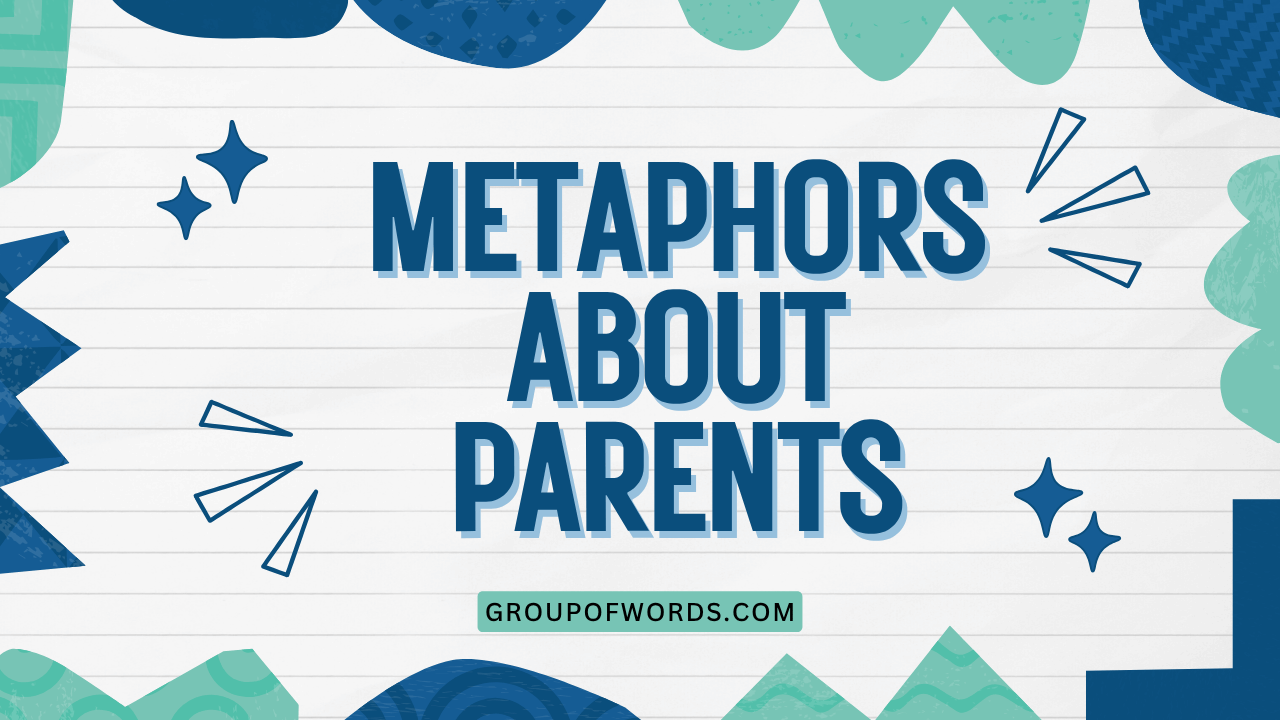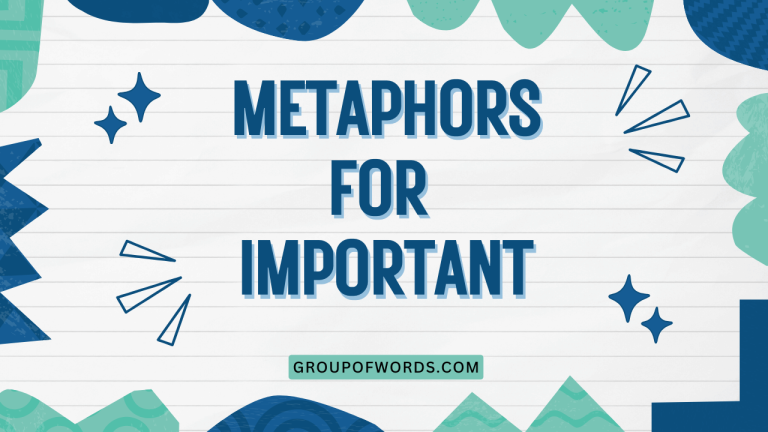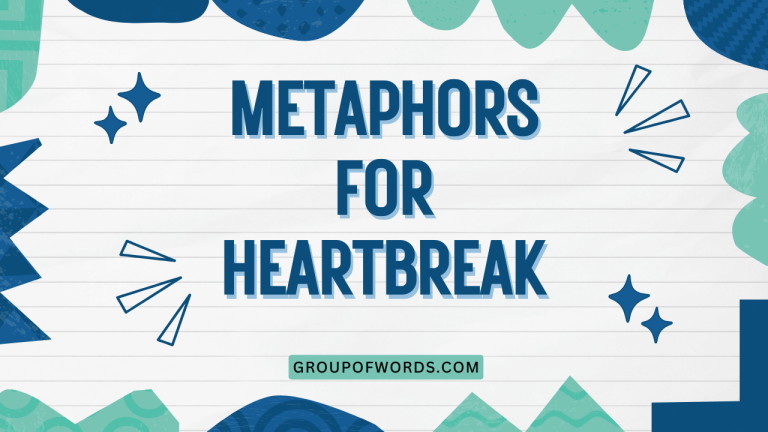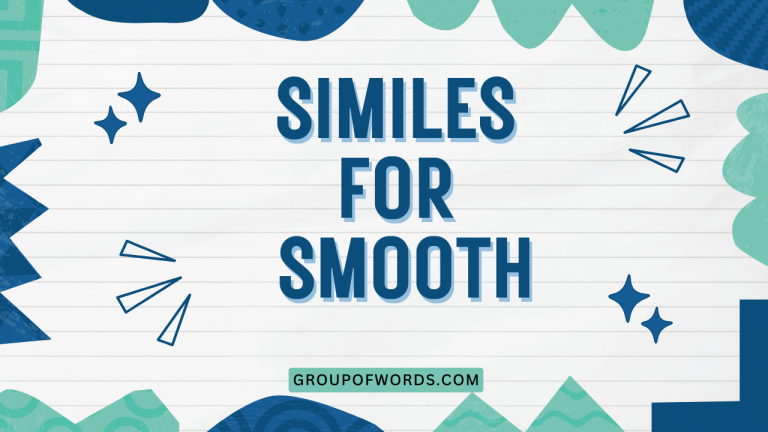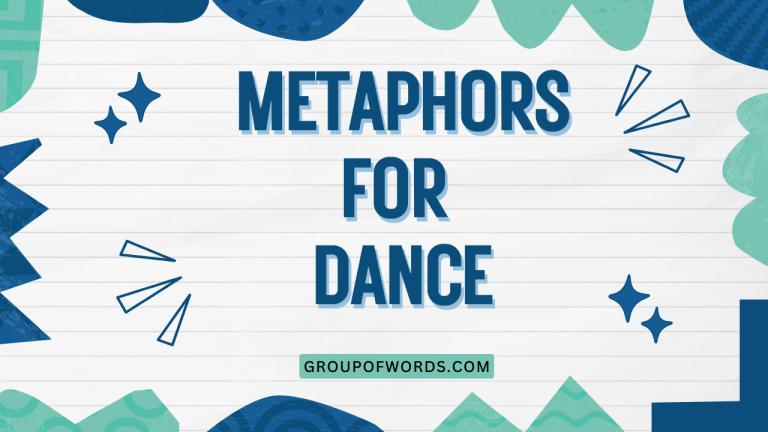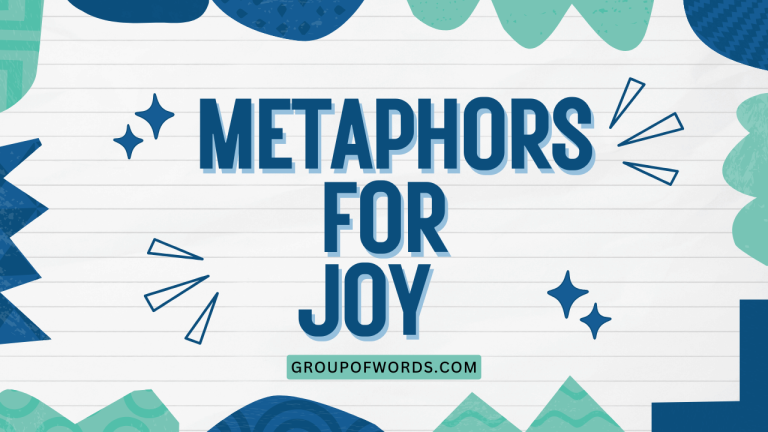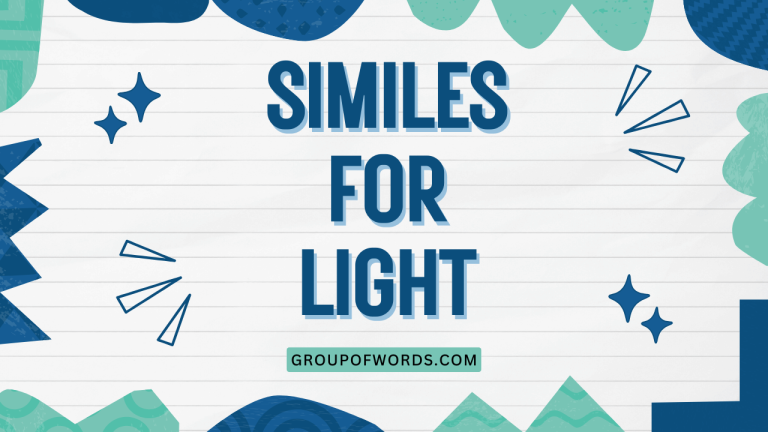Parental Metaphors: Understanding Figurative Language
Metaphors are powerful tools in the English language, allowing us to understand complex concepts by relating them to more familiar ones. When it comes to describing the role and influence of parents, metaphors can be particularly insightful and evocative.
Understanding these metaphors not only enhances our comprehension of literature and everyday language but also provides a deeper appreciation for the multifaceted nature of parenthood. This article explores the diverse world of parental metaphors, providing definitions, examples, and practice exercises to help you master this fascinating aspect of figurative language.
Whether you are an English language learner, a student of literature, or simply someone interested in exploring the nuances of language, this guide will equip you with the knowledge and skills to identify, interpret, and appreciate the richness of parental metaphors. By the end of this article, you’ll have a solid understanding of how these metaphors function and how they contribute to our understanding of family dynamics.
Table of Contents
- Definition of Parental Metaphors
- Structural Breakdown of Parental Metaphors
- Types and Categories of Parental Metaphors
- Examples of Parental Metaphors
- Usage Rules for Parental Metaphors
- Common Mistakes with Parental Metaphors
- Practice Exercises
- Advanced Topics in Parental Metaphors
- Frequently Asked Questions
- Conclusion
Definition of Parental Metaphors
A metaphor is a figure of speech that directly compares two unlike things without using “like” or “as.” It asserts that one thing is another, creating a vivid and often surprising connection. A parental metaphor specifically uses this technique to describe parents or the act of parenting by associating them with something else.
In essence, parental metaphors help us understand the complex roles and responsibilities of parents by framing them in terms of more concrete or relatable concepts. These metaphors can highlight various aspects of parenting, such as nurturing, guidance, protection, or even the challenges and obstacles that parents may represent.
Classification: Parental metaphors fall under the broader category of figurative language and are a subset of metaphors related to human relationships and roles. They can be further classified based on the specific aspect of parenting they emphasize (e.g., nurturing, guidance, protection).
Function: The primary function of parental metaphors is to provide a deeper understanding of parenting by drawing parallels to other concepts. They can evoke emotions, create imagery, and offer new perspectives on the parental experience. They also add richness and depth to writing and speech.
Contexts: Parental metaphors are used in various contexts, including literature, poetry, everyday conversations, psychological analyses, and even in legal and political discourse. Their usage depends on the specific message the speaker or writer intends to convey about parents or parenting.
Structural Breakdown of Parental Metaphors
A typical metaphor consists of two main elements: the tenor and the vehicle. The tenor is the subject being described (in this case, the parent or parenting), and the vehicle is the thing to which the subject is being compared.
For example, in the metaphor “My mother is a rock,” the tenor is “mother,” and the vehicle is “rock.” The metaphor suggests that the mother is strong, stable, and reliable, like a rock.
Pattern: The basic pattern of a parental metaphor is: Parent (tenor) is X (vehicle). Understanding this pattern helps in identifying and interpreting metaphors effectively.
Consider these examples:
- My father is a lighthouse, guiding me through life’s storms. (Father = Lighthouse)
- Her mother was a compass, always pointing her in the right direction. (Mother = Compass)
- His parents were the roots that grounded him. (Parents = Roots)
The effectiveness of a metaphor depends on the clarity and relevance of the connection between the tenor and the vehicle. A well-chosen vehicle can illuminate the subject in a powerful and memorable way.
Types and Categories of Parental Metaphors
Parental metaphors can be categorized based on the specific aspect of parenting they emphasize. Here are some common categories:
Nurturing Metaphors
These metaphors highlight the caring, supportive, and nourishing aspects of parenting. They often use imagery related to food, growth, and comfort.
Guiding Metaphors
Guiding metaphors focus on the role of parents as mentors and advisors. They often use imagery related to direction, navigation, and instruction.
Protective Metaphors
Protective metaphors emphasize the safety and security that parents provide. They often use imagery related to defense, shelter, and strength.
Foundational Metaphors
Foundational metaphors highlight the role of parents in providing a strong base for their children’s development. They often use imagery related to building, roots, and stability.
Challenging Metaphors
These metaphors portray parents as obstacles or challenges that children must overcome. While less common, they can reflect complex or difficult family dynamics.
Examples of Parental Metaphors
The following sections provide extensive examples of parental metaphors, organized by category. Each table includes numerous examples to illustrate the variety and richness of these metaphors.
Parents as Nurturers
This table illustrates how parents are often metaphorically depicted as providers of nourishment, care, and emotional support, akin to the natural elements that foster growth and well-being.
| Metaphor | Explanation |
|---|---|
| My mother is a warm blanket on a cold day. | The mother provides comfort and security. |
| His father was a wellspring of encouragement. | The father consistently provides support and motivation. |
| She is the sunshine in our family. | She brings joy and warmth to the family. |
| My parents are the roots that nourish my soul. | They provide the essential support for my emotional growth. |
| He was a gentle rain, nurturing her potential. | He provided the subtle but essential support for her growth. |
| Her mother’s love was a comforting balm. | The mother’s love soothes and heals. |
| My father is the breadwinner, providing for our family. | The father is the primary financial provider. |
| She is the garden where we all bloom. | She creates an environment where everyone thrives. |
| His mother’s words were a warm cup of cocoa on a snowy day. | Her words provide comfort and reassurance. |
| My parents are the hearth of our home. | They are the center of warmth and comfort. |
| She is the lifeblood of our family. | She is essential to the well-being of the family. |
| My father’s advice was the fertilizer for my dreams. | His advice helped my dreams grow. |
| Her mother’s presence was a haven in a storm. | The mother’s presence provided safety and comfort during difficult times. |
| My father’s support was the fuel that drove my ambition. | His support motivated and sustained my ambition. |
| She is the gentle breeze that soothes my worries. | She calms and alleviates my anxieties. |
| My parents are the shield against the world’s harshness. | They protect me from the difficulties of the world. |
| He was the gentle hand that guided her through childhood. | He provided gentle guidance during her formative years. |
| Her mother is the lighthouse guiding her through life’s storms. | The mother provides guidance and direction. |
| My father’s wisdom is a treasure chest of knowledge. | His wisdom is a valuable resource. |
| She is the nurturing soil where our family’s roots run deep. | She provides the foundation for our family’s growth and stability. |
| My parents are the comforting melody in the soundtrack of my life. | They provide a sense of peace and harmony. |
| He was the anchor that kept her grounded. | He provided stability and prevented her from drifting. |
| Her mother’s love was a warm fire on a winter’s night. | The mother’s love provided warmth and comfort. |
| My father’s strength is the mountain that shelters us. | His strength provides protection and security. |
| She is the gentle stream that nourishes our spirits. | She provides emotional and spiritual nourishment. |
Parents as Guides
This table demonstrates how parents are metaphorically represented as guides, showing the way and offering direction through life’s journey, much like navigators or maps.
| Metaphor | Explanation |
|---|---|
| My father is a compass, always pointing me in the right direction. | The father provides guidance and direction. |
| Her mother was a map, helping her navigate life’s challenges. | The mother provided a framework for understanding and overcoming difficulties. |
| His parents were the North Star, guiding him through the darkness. | They provided constant direction and hope. |
| She is the lighthouse, showing us the way home. | She provides guidance and safety. |
| My father’s advice was a roadmap to success. | His advice provided a clear path to achieve goals. |
| Her mother was a GPS, always recalculating the route. | The mother helped adjust and adapt to changing circumstances. |
| His parents were the sherpas, guiding him up the mountain of life. | They provided support and assistance through difficult challenges. |
| She is the beacon, illuminating the path ahead. | She provides clarity and direction. |
| My father’s wisdom is a guiding star in my life. | His wisdom provides constant direction. |
| Her mother was a signpost, pointing her towards her dreams. | The mother helped her identify and pursue her aspirations. |
| His parents were the navigators, charting his course through life. | They helped him plan and manage his life’s journey. |
| She is the mentor, providing invaluable guidance. | She offers experienced advice and support. |
| My father’s lessons were the map I used to explore the world. | His lessons provided the knowledge and skills to navigate life. |
| Her mother was a seasoned traveler, sharing her wisdom. | The mother shared her life experiences and insights. |
| His parents were the trail guides, leading him through the wilderness. | They provided guidance and support in unfamiliar situations. |
| She is the compass rose, showing all possible directions. | She presents a variety of options and possibilities. |
| My father’s experience was the GPS that kept me on track. | His experience helped me stay focused and avoid mistakes. |
| Her mother was a lighthouse, warning her of hidden dangers. | The mother alerted her to potential risks and challenges. |
| His parents were the instructors, teaching him the rules of the game. | They taught him important life lessons and principles. |
| She is the guide, leading us through uncharted territory. | She provides leadership and direction in new and unfamiliar situations. |
| My father is the experienced captain navigating our family ship. | He provides leadership and direction for the family. |
| Her mother was the voice of reason, guiding her decisions. | The mother provided rational and sound advice. |
| His parents were the pathfinders, discovering new opportunities for him. | They opened doors and created possibilities for his success. |
| She is the wise sage, offering timeless advice. | She shares valuable and enduring wisdom. |
| My father’s insight was the map that led me to my dreams. | His understanding helped me achieve my aspirations. |
Parents as Protectors
This table illustrates how parents are often depicted metaphorically as protectors, shielding their children from harm and providing a sense of safety and security.
| Metaphor | Explanation |
|---|---|
| My mother is a shield, protecting me from harm. | The mother provides defense and security. |
| His father was a fortress, providing unwavering protection. | The father offered strong and reliable defense. |
| Her parents were a safe harbor, sheltering her from life’s storms. | They provided refuge and security during difficult times. |
| She is the guardian angel, watching over us. | She provides constant protection and care. |
| My father’s strength was a wall against the world. | His strength provided a barrier against external threats. |
| Her mother was a security blanket, providing comfort and safety. | The mother offered reassurance and protection. |
| His parents were the bodyguards, defending him from adversity. | They actively protected him from challenges and difficulties. |
| She is the sentinel, standing guard against danger. | She remains vigilant and watchful, preventing harm. |
| My father’s presence was an umbrella in the rain. | His presence provided protection from difficulties. |
| Her mother was a suit of armor, protecting her from criticism. | The mother defended her from negative judgment. |
| His parents were the watchdogs, alerting him to potential threats. | They warned him of potential dangers and risks. |
| She is the sanctuary, providing a safe and peaceful refuge. | She offers a secure and comforting environment. |
| My father’s love was a fortress against fear. | His love provided strength and courage. |
| Her mother was a haven, sheltering her from the world’s harshness. | The mother provided a safe and comforting space. |
| His parents were the guardians, protecting him from harm. | They actively safeguarded him from danger. |
| She is the protector, shielding us from adversity. | She defends us from challenges and difficulties. |
| My father’s wisdom was a shield against bad decisions. | His wisdom helped me make sound choices. |
| Her mother was a bodyguard, defending her from negativity. | The mother protected her from harmful influences. |
| His parents were the sentinels, watching over his well-being. | They were vigilant and concerned for his health and happiness. |
| She is the stronghold, providing unwavering support. | She offers strong and reliable assistance. |
| My father is the rock, providing stability and security. | He offers unwavering support and protection. |
| Her mother was the wall, defending her from criticism. | She shielded her from negative opinions and judgments. |
| His parents were the fortress, sheltering him from the storm. | They provided a safe and secure environment during difficult times. |
| She is the guardian, protecting us from danger. | She watches over us and keeps us safe from harm. |
| My father’s love is the armor that protects me. | His love provides strength and resilience against adversity. |
Parents as Foundation
This table showcases metaphors that portray parents as the fundamental building blocks upon which their children’s lives are built, providing stability and strength.
| Metaphor | Explanation |
|---|---|
| My parents are the roots that ground me. | They provide stability and a sense of belonging. |
| His mother was the cornerstone of his success. | She was essential to his achievements. |
| Her parents were the foundation upon which she built her life. | They provided the fundamental support and structure. |
| She is the bedrock of our family. | She is the source of our stability and strength. |
| My father’s values were the pillars of my character. | His values shaped my moral compass. |
| Her mother was the scaffolding that supported her dreams. | The mother provided temporary support to help her achieve her goals. |
| His parents were the architects of his future. | They designed and shaped his life’s path. |
| She is the anchor that keeps us steady. | She provides stability and prevents us from drifting. |
| My father’s guidance was the blueprint for my success. | His guidance provided a clear plan for achieving my goals. |
| Her mother was the mortar that held the family together. | The mother provided the cohesive force that united the family. |
| His parents were the foundation stones of his character. | They provided the fundamental values and principles that shaped him. |
| She is the cornerstone upon which we build our future. | She is essential to our collective success and stability. |
| My father’s strength was the foundation of our family’s security. | His strength provided the basis for our family’s safety and stability. |
| Her mother was the bedrock of her self-esteem. | The mother provided the fundamental belief in her own worth. |
| His parents were the architects, designing his future with care. | They thoughtfully planned and shaped his life’s path. |
| She is the sturdy oak, providing shelter and stability. | She offers unwavering support and protection. |
| My father’s wisdom was the foundation of my success. | His knowledge and insight were critical to my achievements. |
| Her mother was the base, supporting her ambitions. | The mother provided the essential support for her aspirations. |
| His parents were the building blocks of his character. | They instilled the fundamental values and principles that shaped him. |
| She is the root system, nourishing our family tree. | She provides the essential support and sustenance for our family’s growth. |
| My parents are the solid ground beneath my feet. | They provide stability and support in my life. |
| His mother was the cement that held the family together. | She was the binding force that kept the family united. |
| Her parents were the bedrock on which she built her career. | They provided the unwavering support that enabled her professional success. |
| She is the solid foundation upon which we rely. | She is a source of strength and stability for us. |
| My father’s love is the cornerstone of my happiness. | His affection and support are essential to my well-being. |
Parents as Obstacles
This table provides examples of metaphors that portray parents as challenges or obstacles, reflecting complex or difficult family dynamics where parents might hinder rather than help.
| Metaphor | Explanation |
|---|---|
| My father was a wall, blocking my path to success. | The father hindered my progress and achievements. |
| Her mother was a shadow, constantly looming over her. | The mother’s presence was oppressive and stifling. |
| His parents were a cage, confining his dreams. | They restricted his aspirations and ambitions. |
| She is the chain that binds me to the past. | She prevents me from moving forward. |
| My father’s expectations were a burden I couldn’t bear. | His demands were overwhelming and oppressive. |
| Her mother was a mirror, reflecting only her flaws. | The mother focused solely on her negative aspects. |
| His parents were the gatekeepers, denying him access to opportunities. | They prevented him from pursuing his goals. |
| She is the storm cloud, casting a shadow over my life. | She brings negativity and unhappiness. |
| My father’s criticism was a weight dragging me down. | His disapproval hindered my progress. |
| Her mother was a maze, confusing and disorienting her. | The mother’s actions were perplexing and difficult to understand. |
| His parents were a hurdle, making every step difficult. | They created obstacles and challenges at every turn. |
| She is the anchor, holding me back from my potential. | She prevents me from reaching my full potential. |
| My father’s disapproval was a dark cloud over my achievements. | His negativity overshadowed my accomplishments. |
| Her mother was a puppeteer, controlling her every move. | The mother manipulated and dictated her actions. |
| His parents were a barrier, preventing him from expressing himself. | They suppressed his individuality and creativity. |
| She is the shadow that obscures my light. | She diminishes my achievements and potential. |
| My father’s anger was a fire, consuming my spirit. | His rage damaged my emotional well-being. |
| Her mother was a prison, trapping her in expectations. | The mother’s expectations confined and restricted her freedom. |
| His parents were a roadblock, stopping him from pursuing his dreams. | They prevented him from achieving his aspirations. |
| She is the roadblock, preventing me from moving forward. | She creates obstacles that hinder my progress. |
| My father’s expectations were chains that bound me. | His demands restricted my freedom and potential. |
| Her mother was a suffocating blanket, stifling her growth. | The mother’s overprotectiveness hindered her independence. |
| His parents were a labyrinth, confusing him at every turn. | They created a complex and bewildering environment. |
| She is the weight that holds me down. | She hinders my progress and potential. |
| My father’s criticism was a constant storm in my life. | His negative comments created ongoing turmoil and stress. |
Usage Rules for Parental Metaphors
When using parental metaphors, it’s essential to consider the following rules:
- Clarity: The connection between the tenor (parent) and the vehicle (the thing being compared to) should be clear and understandable. Avoid obscure or confusing comparisons.
- Relevance: The vehicle should be relevant to the aspect of parenting you want to emphasize. For example, if you want to highlight a parent’s protective role, choose a vehicle that represents protection, such as a shield or fortress.
- Consistency: Maintain consistency in your use of metaphors. Avoid mixing metaphors that create conflicting images or messages.
- Context: Consider the context in which you are using the metaphor. The appropriateness of a metaphor can depend on the audience, the tone of the writing, and the overall message.
- Originality: While common metaphors can be effective, strive for originality to make your writing more engaging and memorable. Consider fresh, creative comparisons that offer new insights.
Exceptions: In some cases, intentionally mixed metaphors can be used for humorous or stylistic effect. However, this should be done deliberately and with careful consideration of the impact on the audience.
Common Mistakes with Parental Metaphors
Here are some common mistakes to avoid when using parental metaphors:
| Mistake | Correct Example | Incorrect Example |
|---|---|---|
| Unclear Connection: Using a vehicle that has little or no apparent connection to the parent being described. | My mother is a lighthouse, guiding me through life’s storms. | My mother is a bicycle. (The connection is unclear without further explanation.) |
| Mixed Metaphors: Combining metaphors that create conflicting or nonsensical images. | My father is a rock, providing stability. He’s also a rocket, blasting me forward. | My father is a rock, launching me into space. (Combining stability and launching creates a confusing image.) |
| Clichés: Overusing tired or unoriginal metaphors. | My parents are the wind beneath my wings. | My parents are the air that fills my lungs. (While technically correct, it’s overused.) |
| Inappropriate Tone: Using a metaphor that doesn’t match the tone or context of the writing. | My father is a drill sergeant, pushing me to my limits. (Appropriate in some contexts, but potentially negative if the tone is meant to be supportive.) | My father is a monster. (Generally inappropriate unless the intention is to portray extreme negativity.) |
By avoiding these common mistakes, you can use parental metaphors more effectively and create more impactful writing.
Practice Exercises
Test your understanding of parental metaphors with these exercises.
| Exercise | Question | Answer |
|---|---|---|
| 1 | Identify the metaphor: “My father is a shield, protecting me from harm.” | Father = Shield |
| 2 | What type of metaphor is “Her mother was a compass, always pointing her in the right direction”? | Guiding Metaphor |
| 3 | Correct the mixed metaphor: “My parents are the roots, launching me into the sky.” | My parents are the roots that ground me. OR My parents are the launchpad that sends me to the sky. |
| 4 | Create a nurturing metaphor about a mother. | My mother is a warm blanket on a cold night. |
| 5 | Identify the tenor and vehicle in: “His parents were the foundation upon which he built his life.” | Tenor: Parents; Vehicle: Foundation |
| 6 | What does the metaphor “My father is a rock” suggest about the father? | Strength, stability, reliability |
| 7 | Rewrite the cliché “My parents are the wind beneath my wings” with a more original metaphor. | My parents are the fuel that powers my dreams. |
| 8 | What type of metaphor is “My father was a wall, blocking my path”? | Challenging Metaphor |
| 9 | Complete the metaphor: “Her mother was a _______, guiding her through life’s challenges.” | Map/Compass |
| 10 | Explain the meaning of the metaphor: “His parents were a safe harbor, sheltering him from life’s storms.” | They provided refuge and security during difficult times. |
Exercise 2: Sentence Completion
| Exercise | Question | Answer |
|---|---|---|
| 1 | My mother’s love is like a ________, always comforting me. | Warm fire/Soft blanket |
| 2 | His father’s advice was a ________, guiding him to success. | Roadmap/Blueprint |
| 3 | Her parents were the ________ that grounded her, keeping her stable. | Roots |
| 4 | She is the ________ of our family, always providing support. | Backbone/Anchor |
| 5 | My father’s strength is like a ________, protecting us from harm. | Shield/Fortress |
| 6 | Her mother was a ________, illuminating her path forward. | Lighthouse/Beacon |
| 7 | His parents were the ________ upon which he built his dreams. | Foundation |
| 8 | She is the ________ in our lives, always bringing joy and warmth. | Sunshine |
| 9 | My father’s wisdom is a ________, guiding my decisions. | Compass/Star |
| 10 | Her mother was a ________, sheltering her from the world’s harshness. | Haven/Sanctuary |
Exercise 3: Metaphor Creation
Create your own parental metaphors based on the following prompts. Try to be creative and original.
- Describe a father as a guide.
- Describe a mother as a protector.
- Describe parents as a foundation.
- Describe a parent (challenging relationship) as an obstacle.
Advanced Topics in Parental Metaphors
For advanced learners, consider exploring these more complex aspects of parental metaphors:
- Extended Metaphors: Analyzing metaphors that are sustained throughout an entire poem, story, or essay.
- Subverted Metaphors: Examining how writers intentionally twist or invert common parental metaphors to create irony or satire.
- Cultural Variations: Investigating how parental metaphors differ across cultures and languages.
- Psychological Interpretations: Exploring the psychological implications of different parental metaphors, particularly in the context of family therapy or psychoanalysis.
Frequently Asked Questions
- What is the difference between a metaphor and a simile?
A metaphor directly equates two unlike things (e.g., “My father is a rock”). A simile compares two unlike things using “like” or “as” (e.g., “My father is like a rock”).
- Why are metaphors important in language?
Metaphors enhance understanding, evoke emotions, create vivid imagery, and add depth and richness to communication. They allow us to express complex ideas in a concise and memorable way.
- How can I identify a metaphor in a sentence?
Look for statements that assert one thing is another, where the connection between the two things is not literal but figurative. Ask yourself if the statement is meant to be taken literally or if it’s an imaginative comparison.
- Can a metaphor be used incorrectly?
Yes, metaphors can be used incorrectly if the connection between the tenor and the vehicle is unclear, if the metaphor is mixed or
contradictory, or if the metaphor is a cliché that has lost its impact.
Conclusion
Parental metaphors are a powerful tool for understanding and expressing the complex dynamics of family relationships. By recognizing and interpreting these metaphors, we can gain deeper insights into the roles, responsibilities, and influences of parents.
Whether you are analyzing literature, writing creatively, or simply engaging in everyday conversation, a solid understanding of parental metaphors will enrich your communication and enhance your appreciation of language.
